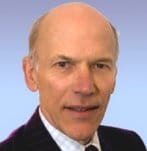
RSNSW & Four Academies Forum 2017: abstracts
The Future of Reason in a Post-Truth World
Professor Mary O’Kane AC FTSE FRSN, Chief Scientist and Engineer of NSW
Introductory comments (no abstract available)
Don Hector AM FRSN, Vice President and immediate past President of RSNSW
“Rationality and post-truth – the threat to democratic society”
Two-thirds of Americans get at least some of their news from Facebook and over half get some of their news from Twitter. What has happened to reason? The post-modernists and relativists are in the ascendancy. The great Enlightenment philosopher David Hume said that errors in religion are dangerous but that errors in philosophy are only ridiculous. That is not the case. Rejecting established sources of reason and accepting that belief should have equal sway with fact puts an open, free society in great danger. Today’s topic – truth, rationality and post-truth – is important because of the threat to these institutions posed by the emergence of “post-truth”.
This paper started by looking at two issues. What is meant by the words “is true” (referred to as the “truth predicate”)? And the criteria for truth – how can we establish whether something is true or false? The situation is further complicated by the psychological processes humans used to consider these issues. To determine whether a judgement, a choice, or a decision is likely to be successful, there are two things to consider. First: is the judgement rational – that is, is it coherent with the prevailing paradigm? Second: is the judgement accurate – does it correspond to established, accepted facts? Both are necessary for a sound judgement to be reached but neither is sufficient. But human cognition is flawed – our rationality is bounded and this can lead to serious errors. Bringing these two subjects together – philosophy and cognitive psychology – can give some insight into the nature of post-truth and the implicit threat to our open, democratic society.
 Donald Hector is based in Sydney and works with clients in Australia and the UK. He has extensive experience in large-scale industrial processing and the evaluation and commercialisation of new technologies. He was managing director of Dow Corning Australia and the executive director responsible for the Australian/New Zealand, ASEAN and Indian subsidiaries of Dow Corning Corporation, a high-technology, American multi-national company. He was also managing director of Asia Pacific Specialty Chemicals Ltd, an ASX-listed specialty chemicals and food-additives company and has been a non-executive chairman and director of ASX-listed and private companies and not-for-profit organisations.
Donald Hector is based in Sydney and works with clients in Australia and the UK. He has extensive experience in large-scale industrial processing and the evaluation and commercialisation of new technologies. He was managing director of Dow Corning Australia and the executive director responsible for the Australian/New Zealand, ASEAN and Indian subsidiaries of Dow Corning Corporation, a high-technology, American multi-national company. He was also managing director of Asia Pacific Specialty Chemicals Ltd, an ASX-listed specialty chemicals and food-additives company and has been a non-executive chairman and director of ASX-listed and private companies and not-for-profit organisations.
Simon Chapman AO FASSA Hon FFPH (UK), Emeritus Professor, School of Public Health, University of Sydney
“Wind Turbine Syndrome – a communicated disease”
The world faces an existential threat from climate change and the transition to clean, renewable energy is front and centre of global hopes for avoiding some of the worst forecasts. Today, Australia has no peak national body or commission for climate change. Yet thanks to the efforts of four cross-bench politicians whose votes were courted by an appeasing government, we have a Commissioner for Wind Farms. The National Health and Medical Research Council has no dedicated program of research focussed on climate change, but it has a dedicated research program on wind farm disease.
Some 25 reviews published since 2003 have concluded that there is very weak evidence for any direct effects on health of wind turbine exposure, but good evidence of small numbers in some exposed communities being “worried sick”. The presentation discussed psychogenic illness and wind farms and the effort of their opponents to spread scientific claptrap. These efforts have seen 3 Senate and 2 state parliamentary enquiries in 5 years to what is a non-disease and retarded Australia’s embrace of wind energy while many nations have greatly accelerated their roll-out.
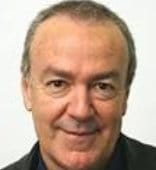 Simon Chapman is Emeritus Professor in Public Health at the University of Sydney. He has published over 500 original articles, editorials and commentaries in peer reviewed journals and 20 books and major reports. In 1997 he won the World Health Organisation’s World No Tobacco Day Medal and in 2003 he was voted by his international peers to be awarded the American Cancer Society’s Luther Terry Award for outstanding individual leadership in tobacco control.
Simon Chapman is Emeritus Professor in Public Health at the University of Sydney. He has published over 500 original articles, editorials and commentaries in peer reviewed journals and 20 books and major reports. In 1997 he won the World Health Organisation’s World No Tobacco Day Medal and in 2003 he was voted by his international peers to be awarded the American Cancer Society’s Luther Terry Award for outstanding individual leadership in tobacco control.
James Wilsdon FAcSS, Professor of Research Policy, University of Sheffield (given by Professor Paul Griffiths)
“The Brexit experience – evidence, expertise and post-truth politics”
Over the past twenty years, the UK has built up a strong reputation internationally for the quality of its scientific advisory system, and its willingness to experiment and innovate with new approach to evidence-informed policymaking (its early adoption of behavioural economics and What Works centres being two recent examples). But this seemingly progressive arc towards the ever-greater uptake of evidence and expertise in decision-making took a major knock in June 2016, with the result of the referendum on UK membership of the European Union (EU) swinging narrowly (52%-48%) in favour of Brexit. This was despite a mountain of evidence, and the near-unanimous support of experts of all kinds, for remaining in the EU. The referendum process itself was also marred by exaggeration and the use of dubious facts and figures on both sides (particularly by the ‘Leave’ campaign), by accusations of outside interference in the democratic process by a range of murky and unaccountable actors (including the Russian government), and by the introduction into British political discourse of an unusually critical stance on the value and legitimacy of evidence and expertise in the debate (most notably in the now-infamous remark by government minister Michael Gove MP that “the British people have had enough of experts.”).
Eighteen months on from the referendum result, with the Article 50 exit negotiations floundering, and an exit date set in law for 29 March 2019, there are few signs of any healing of the ruptures caused by the Brexit process. Rather like the phenomenon of Donald Trump’s election to the US presidency, many in the UK see this period as one in which ‘post-truth’ politics have won out over rationality and the long-term national interest. Academics and universities, in particular, remain under enormous political pressure, and are subject to regular media attacks for being too pro-Remain. How do we make sense of what has gone on? Does Brexit signal a decisive shift in the status and role of evidence and expertise in British policy and decision-making, or will it come to be seen as an aberrant blip? And does Brexit pose more profound lessons and challenges to the UK’s “expert elites” in how they engage with wider public values, attitudes and concerns? Drawing on insights from political and behavioural science, and the science of scientific advice, James Wilsdon will reflect on where the UK now stands in relation to these debates, and where we go from here.
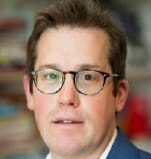 James Wilsdon joined the Department of Politics University of Sheffield as Professor of Research Policy in January 2016. He combines this with a role as Director of Impact and Engagement for the Faculty of Social Sciences, and Associate Director in the Grantham Centre for Sustainable Futures. He is a programme leader for the ESRC/HEFCE Centre for Global Higher Education (CGHE), and vice-chair of the International Network for Government Science Advice (INGSA). James contributes regularly to the media and he is one of the editors of the Guardian’s ‘Political Science’ blog on science and research policy.
James Wilsdon joined the Department of Politics University of Sheffield as Professor of Research Policy in January 2016. He combines this with a role as Director of Impact and Engagement for the Faculty of Social Sciences, and Associate Director in the Grantham Centre for Sustainable Futures. He is a programme leader for the ESRC/HEFCE Centre for Global Higher Education (CGHE), and vice-chair of the International Network for Government Science Advice (INGSA). James contributes regularly to the media and he is one of the editors of the Guardian’s ‘Political Science’ blog on science and research policy.
Professor Emma Johnston FRSN, Dean of Science, University of NSW
“Why are scientists so quiet? Cultural and philosophical constraints on the public voice of the scientist”
In this post-truth era of virulent attacks on science and online trolls, we scientists find ourselves scrambling for a foothold in an environment in which everyone has a voice, and in which is the truth can be virtually impossible to distinguish from ‘fake news’, and everything else in between. How do we react as a profession to shore up our own standing, and the importance of our work and of evidence-informed decision making, when the public is struggling to recognise credible scientific knowledge within this information free for all? I believe we are at a turning point that will serve as the catalyst for the remaking of much of what we have long understood as the culture and ‘rules’ of science. First, we need to turn our attention to, and seek to understand, the profound impact of new information technologies on how we communicate science. We need to critically analyse our own culture of knowledge-making and acknowledge and challenge the constraints that have long discouraged scientists from speaking out, leaving many of us now stranded ineffectually on the edge of public discourse. But, this is just the first and most obvious step. If we challenge our entrenched culture we will also be forced to rethink science education and, ultimately, how we ‘do science’; that is, how we create knowledge, our ultimate goal. This means recognising and embracing the new opportunities that change is throwing up, rather than bemoaning the inevitable pain of disruption. To do this, we need to loosen the academic hierarchies that have ‘quietened’ scientists, we need to teach science students to speak out and to speak up, and learn how to do so ourselves. Most importantly, we need to drive the restructuring of knowledge-making by overcoming our tendency to huddle in silos, and work collaboratively instead. This presentation argued that by collaborating not only across disciplines, but also in genuine partnerships with communities, businesses and industries, we can go a long way to re-establishing trust in, and appreciation of, the power and validity of science and the scientific process.
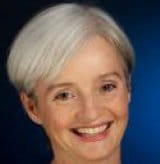 Emma Johnston is is a leading authority in marine ecology and a former Pro Vice-Chancellor (Research) at UNSW. Professor Johnston has an exceptional research career. She is head of the Applied Marine and Estuarine Ecology Lab at UNSW, and has led major research projects for industry, government, the Australian Research Council and the Australian Antarctic Science Program. She was the inaugural director of the Sydney Harbour Research Program at the Sydney Institute of Marine Science. As President-Elect of Science and Technology Australia, Professor Johnston is also a public advocate for science and for increasing the participation of women in research.
Emma Johnston is is a leading authority in marine ecology and a former Pro Vice-Chancellor (Research) at UNSW. Professor Johnston has an exceptional research career. She is head of the Applied Marine and Estuarine Ecology Lab at UNSW, and has led major research projects for industry, government, the Australian Research Council and the Australian Antarctic Science Program. She was the inaugural director of the Sydney Harbour Research Program at the Sydney Institute of Marine Science. As President-Elect of Science and Technology Australia, Professor Johnston is also a public advocate for science and for increasing the participation of women in research.
Professor Lisa Bero, Faculty of Pharmacy and Charles Perkins Centre, University of Sydney
“Influences on evidence… putting the cart before the horse”
Conflicts of interest, particularly those related to financial gain, can influence policymaking and mechanisms exist to try to minimize their impact on decisions. There has been a great deal of investigation and concern about the role of evidence in policymaking compared to other influences. But, have we been putting the cart before the horse? Should we be paying more attention to what influences the evidence? Conflicts of interest can bias the design, methods, conduct, interpretation and publication of research. These biased findings have led decisionmakers to underestimate harms or overestimate effectiveness of interventions. The research community has responded by increasing transparency about the research enterprise. But this is not enough. We should strive to reduce the influence of conflicts of interest on research so we can have trustworthy evidence.
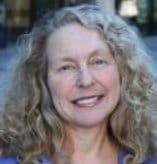 Lisa A. Bero directs the Evidence, Policy and Influence Collaborative Research Program at the Charles Perkins Centre, University of Sydney. Prof. Bero studies biases in the design, conduct and dissemination of science with the aim of reducing it and improving the use of research for policy and practice. She has developed and validated methods for assessing bias in research on pharmaceuticals, tobacco, chemicals, nutrition and complex public health interventions.
Lisa A. Bero directs the Evidence, Policy and Influence Collaborative Research Program at the Charles Perkins Centre, University of Sydney. Prof. Bero studies biases in the design, conduct and dissemination of science with the aim of reducing it and improving the use of research for policy and practice. She has developed and validated methods for assessing bias in research on pharmaceuticals, tobacco, chemicals, nutrition and complex public health interventions.
Sir Peter Gluckman KNZM FRSNZ FMedSci FRS, Chief Science Advisor, New Zealand
“Role of evidence and expertise in policymaking – the politics and practice of scientific advice” (no abstract available)
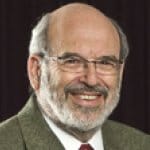 Based in New Zealand since 1980 Sir Peter spent 17 years funded on research grants developing a group of more than 60 people focused on developmental endocrinology and neuroscience. Their work both addressed issues of human growth and development and pastoral animal growth and development. In 1991 He was appointed Dean of the Faculty of Medicine and Health Sciences at the University of Auckland while continuing to lead an active research group. He is the Prime Minister of New Zealand’s Chief Science Advisor.
Based in New Zealand since 1980 Sir Peter spent 17 years funded on research grants developing a group of more than 60 people focused on developmental endocrinology and neuroscience. Their work both addressed issues of human growth and development and pastoral animal growth and development. In 1991 He was appointed Dean of the Faculty of Medicine and Health Sciences at the University of Auckland while continuing to lead an active research group. He is the Prime Minister of New Zealand’s Chief Science Advisor.
Andrew Jakubowicz, Professor of Sociology, School of Communication, University of Technology Sydney
“Algorithms of hate – how the Internet facilitates the spread of racism and how public policy might help stem the impact”
Complex multicultural societies hold together through communication, which reinforces civility, enhances information sharing, and facilitates the expression of interests while permitting both diversity and commonality. While trust is an important cement in the building of social cohesion, multicultural societies face continuing challenges to the trust necessary to constitute supportive, bridging social capital. The Internet offers both opportunities and challenges, especially in the generation and circulation of race hate speech which attacks social cohesion. The Internet in Australia remains problematic for four key reasons. The underlying algorithms that produce social media and underpin the profitability of the huge domains of Facebook and Alphabet also facilitate the spread of hate speech online. With very limited constraints on hate speech, the Australian Internet makes it easy to be racist. Human/computer interactions allow for far greater user disinhibition, which suits the proclivities of those more manipulative and sadistic users of the Internet. All of this is occurring in a post-truth world where racially, religiously and nationistically inflected ideologies spread fairly much unchecked, and discourses of violence become everywhere more apparent. Australia has opportunities to do something about this situation in this country, yet we see around us a lethargy and acceptance of technological determinism. The paper assesses these claims and proposes some ways forward that are evidence-based, and collaborative, scholarly and social.
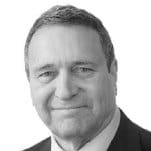 Andrew Jakubowicz MAICD is the author of books on multiculturalism, media racism and diversity, and cyber-racism and community resilience. His many articles are standard references in teaching around Australia, ranging from his study on media manipulation during the first Iraq War (The Invisible Ally) to Political Islam in Australia.
Andrew Jakubowicz MAICD is the author of books on multiculturalism, media racism and diversity, and cyber-racism and community resilience. His many articles are standard references in teaching around Australia, ranging from his study on media manipulation during the first Iraq War (The Invisible Ally) to Political Islam in Australia.
Professor Nick Enfield FAHA, Faculty of Arts and Social Sciences and the Sydney Research Excellence Initiative, University of Sydney
“Mind and language in the post-truth era”
We often defer to others’ expertise, and for good reason. The entire edifice of modern society only exists thanks to the division of labour, from construction to machine operation to medical treatment. The system works as long as we have trust in others’ knowledge, skills and intentions. We cannot afford to dismiss the testimony of those with scientific and technical expertise. Like the airline pilots who we rightly trust to fly our planes, scientists have knowledge and skills that many of us both lack and need. It is not remotely in our interests to dismiss expert testimony from those who would inform policy on matters from energy to health to climate change. Yet many public figures act otherwise. Tony Abbott famously remarked that “coal is good for humanity”. In response to the WHO’s praise of the Vatican’s recent decision to ban the sale of cigarettes, noting that tobacco kills more than 7 million people every year, British politician Nigel Farage stated: “The World Health Organization is just another club of ‘clever people’ who want to bully and tell us what to do. Ignore.”
The scientific community is responding with a growing counter-movement. A global March for Science on Earth Day in April 2017 saw more than 600 cities participate. Thousands have signed a Pro-Truth Pledge, with commitments including ‘fact-check information to confirm it is true before accepting and sharing it’, ‘reevaluate if my information is challenged, retract it if I cannot verify it’, and ‘distinguish between my opinion and the facts’. Sticking to commitments like these is hard work, and does not come naturally. The struggle to do so encapsulates two fundamental things about what it means to think and talk like a human.
The first is that while human higher reasoning is a celebrated capacity of our species, we are in fact notoriously poor reasoners. Nobel Prize winner Daniel Kahneman, among many others, has shown that our reasoning is riddled with cognitive bugs and biases. The confirmation bias is one of the most insidious. We are highly likely to believe or at least accept and repeat statements that support our established views, even when little or no evidence is given to support those statements. Yet we are unlikely to accept or repeat statements that go counter to our established views, even when they are well-supported by evidence. This bias is the engine that drives the click-by-click spread of fake news and other dangerous nonsense.
The second thing is that humans are psychologically capable of the remarkable feat of focusing our attention on our own thought processes, and deliberately overriding them. We can identify our own flawed habits of thinking, and then use more deliberate cognition to outsmart these habits and avoid the pitfalls. Much of higher learning involves the cultivation of just this capacity.
Because the deliberate attention to our own faults of reasoning requires vigilance, people need to be motivated to put in the hard work needed. The solution that has worked well so far is to maintain social norms by which we agree to be accountable to evidence and other elements of rational argumentation. This in turn has given us reason to rein in our more instinctive, biased patterns of reasoning. The post-truth crisis is none other than the breakdown of these norms.
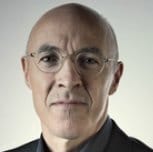 Nick Enfield is Professor of Linguistics at the University of Sydney, and Director of the Sydney Social Sciences and Humanities Advanced Research Centre. He is Head of the Post Truth Initiative, a Sydney Research Excellence Initiative. Nick is known for winning an Ig Nobel Prize in 2015 for breakthrough research in linguistics that found evidence of a universal trait in human conversation – the word ‘Huh’.
Nick Enfield is Professor of Linguistics at the University of Sydney, and Director of the Sydney Social Sciences and Humanities Advanced Research Centre. He is Head of the Post Truth Initiative, a Sydney Research Excellence Initiative. Nick is known for winning an Ig Nobel Prize in 2015 for breakthrough research in linguistics that found evidence of a universal trait in human conversation – the word ‘Huh’.
Ross Gittins FASSA FRSN, Economics Editor, The Sydney Morning Herald
Ross responded to the events of the day under the loose title of
“The view from Grub Street: Has it all just been FAKE NEWS?”
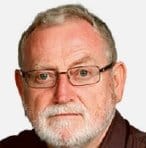 Ross Gittins has been the Herald’s economics editor since 1978 and is one of Australia’s most influential public commentators. He has a reputation for helping readers make sense of complex economic issues.
Ross Gittins has been the Herald’s economics editor since 1978 and is one of Australia’s most influential public commentators. He has a reputation for helping readers make sense of complex economic issues.